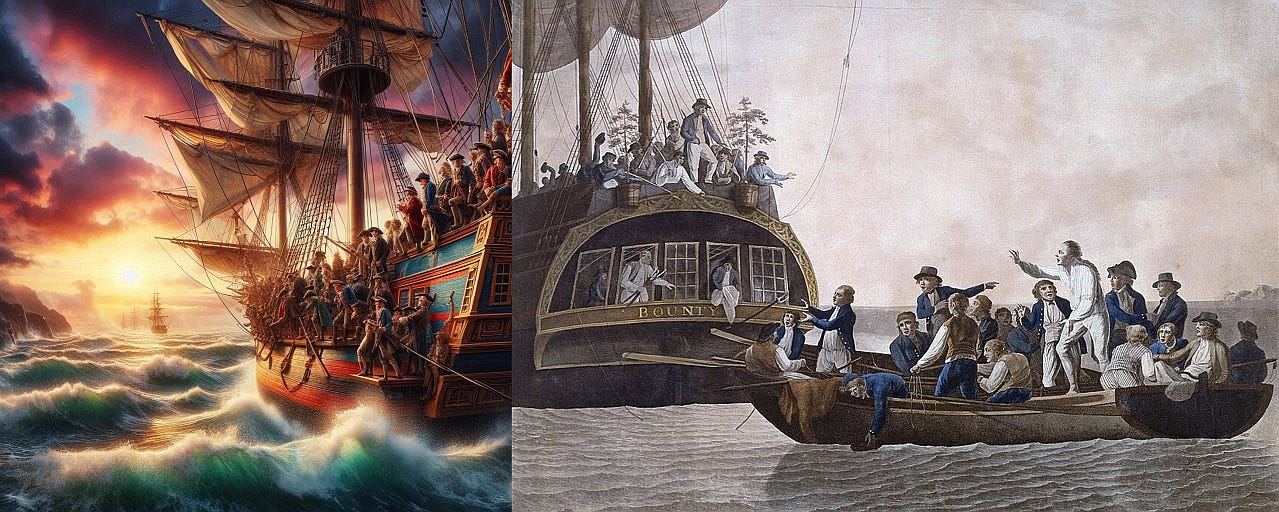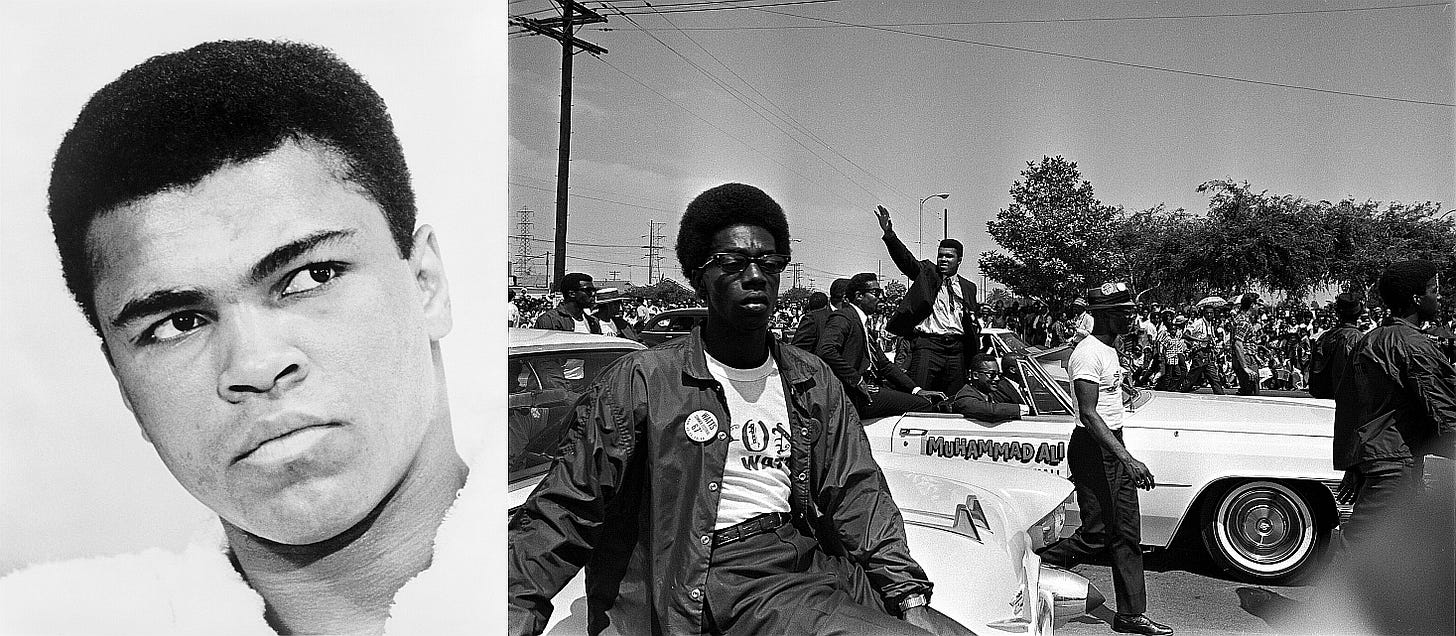“Those who cannot remember the past are condemned to repeat it.” — Spanish-American philosopher George Santayana, 1905
1789 — Mutiny on the Bounty
image on left generated using Bing Image Creator; public domain image on right from wikimedia commons
On this date in 1789 (the same year the French Revolution began, and George Washington became the first President of the United States), Fletcher Christian kicked the captain of the Bounty, William Bligh, along with 18 of the crew who wanted no part of the mutiny, off the HMS Bounty and into a small, open boat.
The mutineers numbered 26.
Rather than being relegated to the cramped dinghy being a death sentence, Bligh and his 18 were able to reach land, and Bligh returned to sea as a captain (his men mutinied against him on three separate occasions, so he obviously was no charismatic sailor’s captain, but rather a harsh martinet).
Christian and those from his group that hadn’t decided to settle on Tahiti eventually ended up on Pitcairn Island, in January of 1790. The mutineers figured they were safe there, as it was isolated and previously uninhabited.
Meanwhile, those who had taken their chances in Tahiti were captured, returned to England, and brought to trial. Three of them were hanged.
When the group on Pitcairn were discovered eighteen years later by an American whaling vessel in 1808, only one of the nine mutineers who had settled there was still alive, a John Adams, who claimed that the other men had died from sickness and internal strife.
Another seventeen years passed. Then, in 1825, Pitcairn was visited by a British ship. Adams was granted amnesty. He died four years later, in 1829. There are currently just a few dozen who live on Pitcairn (others from the group were relocated to Tahiti and Norfolk Island); most of the current residents of Pitcairn Island, and many on Norfolk Island, are descended from Fletcher Christian and the other mutineers.
Questions: Do you think the mutineers were right in turning against Captain Bligh? Do you think they were right to set him and his men adrift? What were the motives of those who chose to stay with Bligh — was it devotion to duty, fear of being punished as mutineers, or some combination of the two?
1967 — Muhammad Ali Conscientiously Objects
public domain images from wikimedia commons
The man (1942-2016) was born Cassius Marcellus Clay Jr. His father, Cassius Marcellus Clay Sr. (1912-1990) was named after white politician and abolitionist Cassius Marcellus Clay (1810-1903).
Jr. changed his name to Muhammad Ali when he became a Muslim in 1964.
On this date in 1967, Ali refused to be inducted into the military, saying, “I ain’t got no quarrel with those Vietcong.” For that refusal, he was stripped of his heavyweight boxing title; fined $10,000; prevented from boxing for three years; and sentenced to five years in prison.
Ali remained free while he was appealing his sentence; ultimately, the Supreme Court overturned his conviction.
Questions: Do you think Clay/Ali was the greatest boxer of all time? Would you rather float like a butterfly or sting like a bee?
Read about “The Secret Lives of Kids” here.










